Re The UN General Assembly Speaker Schedule is Here! I note that whoever will be speaking for Canada this year…
John Ciaccia OWN 1933-2018
Written by Diana Thebaud Nicholson // September 17, 2018 // Absent Friends, Wednesday Nights // 3 Comments
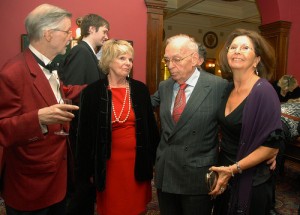 Photo by Robert J. Galbraith at WN #1500
Photo by Robert J. Galbraith at WN #1500
It is with immense sadness that I share the news that John Ciaccia died peacefully on Tuesday (7 August) afternoon at the beautiful home he loved so much – and where we gathered so often over the years. John was a dear and valued friend to our entire family and to many Wednesday Nighters, generous, funny, thoughtful, a great patriot and a humble man. We were so privileged to have shared many wonderful moments with him and we loved him dearly. The well-deserved tributes will be pouring in from people of all walks of life and from a huge range of communities; he was so widely admired and loved. I hope that his son Mark, and grandsons will take consolation in reading what others will say about him. Special thoughts for Martha Ebssa, whose devotion knew no bounds. God bless you, John.
17 September
Tribute in the House of Commons today from his friend and former colleague Francis Scarpaleggia
https://www.facebook.com/fscarpaleggia/videos/476286466181406/
20 August
Opinion: Remembering the remarkable John Ciaccia
The longtime MNA deserves our gratitude for his contributions to the common good, especially in the realm of Indigenous affairs, recalls colleague and friend Clifford Lincoln.
(Montreal Gazette) Politicians come and go. A majority of them fade away from the scene and are soon forgotten. Few are those who leave an imprint, let alone a legacy.
John Ciaccia left both an imprint and a legacy. During his lengthy political career of six mandates at the National Assembly as member for Mount Royal, he held senior cabinet posts as minister of energy and minister of international affairs.
However, it was the delicate and complex realm of Indigenous Affairs where he left the deepest imprint.
In 1973, Ciaccia, then serving as assistant deputy minister at the federal department of Native Affairs, was recruited by Premier Robert Bourassa to run in Mount Royal.
Bourassa’s central ambition and platform at the time was the harnessing of the massive water resources of the James Bay basin for hydro-electric development. Conscious of the resistance of the Crees and Inuit to his controversial project, Bourassa needed an ambassador and catalyst, whose wisdom, credibility and trust vis-à-vis the Indigenous communities would help him achieve his goal. Enter Ciaccia as his personal representative and liaison with those communities.
The 1975 James Bay Agreement that ensued is not without its detractors among Indigenous people. Yet it signalled a new era of co-operative agreements between Indigenous peoples and governments. It is by any standard a massive and ground-breaking initiative, and Ciaccia will be remembered as one of its chief architects, if not its focal one.
His work with Indigenous communities is marked as well by his central role during the 1990 Oka Crisis. The respect with which he was held by the Mohawks of both Kahnawake and Kanesatake became perhaps the central element in the resolution of the unwieldy and unfortunate standoff, which lasted more than two months.
Politicians should be far more than politics, for career is only part of life. The more we seek and strive beyond career, the more enriching and inspiring becomes life. Ciaccia’s interests reflected that broader sense of being. An accomplished musician, he played the piano with effortless grace. He loved books and reading, and kept an imposing library at his home in Beaconsfield. For years, he was a regular participant in a discussion group.
I was first elected to the National Assembly in 1981, within a caucus of 40 Liberals forming the Opposition. A remarkable feature of that caucus was the presence of three colleagues born in Italy, in the same region of Campobasso, within a few kilometres of one another: Ciaccia, Bill Cusano and Cosmo Maciocia. I became an honorary member of that “Italian club,” and in the evening we often dined at an Italian restaurant in Quebec City.
After we had both retired, Ciaccia and I had the good fortune in 2005-6 of working together again, during negotiations between the Quebec government and the Algonquins of Barrière Lake. Ciaccia was asked to represent Quebec, and I the Algonquins. The negotiations lasted over a year, and followed their usual complicated and delicate pattern. Ciaccia always came fully prepared, and invariably open-minded. It was in no small measure due to his judicious and skilled contribution that a consensus was reached through a document now known as the Ciaccia/Lincoln Recommendations.
I am often in contact with Indigenous friends, who all express a genuine respect for Ciaccia. One of the very militant ones I know told me, on hearing of his passing, “he was always fair” — an immense compliment.
Ciaccia stayed a private person in public life and beyond. He never took himself seriously, remaining ever approachable and a patient listener. His contribution to the common good is an important one, and he deserves our gratitude.
Clifford Lincoln is a former member of the National Assembly and former member of Parliament, representing West Island ridings. He lives in Baie-d’Urfé.
17 August
Death Notice:
John Ciaccia March 4th, 1933 – August 7th, 2018.
It is with a heavy heart that we announce that John “Giambattista Nicola” Ciaccia passed away on August 7th at home surrounded by friends and family, after a courageous battle with a respiratory infection.
He is survived by his son Mark, his grandsons, Eric and Nicolas, wife of 35 years Norma and his long-time assistant, and “daughter he never had”, Martha Ebssa. His mother Angelina, father Pasquale, and sister Maria predeceased him.
John started his career as lawyer. After over a decade of success with private firms, he answered the call of public service. From 1971 through 1973, he worked for the federal Department of Indian Affairs as Assistant Deputy Minister. From 1973 through 1998, he served as the MNA for the riding of Mont-Royal. Over the years, he was given various cabinet portfolios such as Energy and Natural Resources, International Affairs, Native Affairs, and Immigration and Cultural Communities. Perhaps, his most rewarding work involved the Quebec’s First Nations: he was a key figure in negotiating the James Bay and Northern Quebec Agreement. Also, as chief negotiator for the Government of Quebec, he was instrumental in helping to resolve the Oka Crisis.
John’s life is a testament of generosity and advocacy for the marginalized. He will be terribly missed.
Visitation will take place at Centre funéraire Côte-des-Neiges (4525 ch. de la Côte-des-Neiges, Montreal, QC H3V1E7) on Thursday September 6 from 2 p.m. to 5 p.m. and from 7 p.m. to 9 p.m. Funeral service will be at the Madonna Della Difesa Church (6800 Henri Julien Ave, Montreal, QC H2S 2V4) on Friday September 7 at 11:00 a.m., thence to the Notre-Dame-des-Neiges Cemetery for John’s final resting place.
In lieu of flowers, donations in John’s memory can be made to the charitable organizations DANS LA RUE (https://danslarue.org/en/donations/) and the FONDATION CIBPA (8370, Lacordaire Boulevard, suite 310, Montréal (Québec) H1R 3Y6, Telephone: (514) 254-4929, info@cibpamontreal.com ).
https://www.dignitymemorial.com/obituaries/montreal-qc/john-ciaccia-7964309
Rita de Santis:
John Ciaccia, né Giambattista Nicola Ciaccia le 4 mars 1933 à Jelsi en Italie, est décédé hier le 7 août 2018. Mes plus sincères condoléances à son fils, Marc, à ses petits-fils, Nicholas et Eric, et à tous les autres membres de sa famille ainsi qu’à ses amis. John a pris part à la construction d’un Québec moderne et je sais qu’il était très fier d’être Québécois et Canadien d’origine italienne. Auteur de « La crise d’Oka, miroir de notre âme » et de « Call me Giambattista”, il était aussi très fier de sa relation avec les communautés autochtones.
We will miss you, John. Thank you for having shared your dreams and aspirations with us. Un forte abbraccio. Non ci scorderemo mai di te!
 Photo by Laszlo Dec 1996
Photo by Laszlo Dec 1996
Alan Hustak: For those of us who had the privilege of knowing John Ciacca –
Mont-Royal’s beloved John Ciaccia is gone
(The Suburban) John Ciaccia, held three cabinet posts during his 25 years as an MNA in the Quebec government, but it was as the native affairs minister in Robert Bourassa’s government who negotiated the precedent setting James Bay Hydro Electric agreement with the Northern Cree and Inuit population that he left his indelible mark on the province.
He was also a sympathetic negotiator during the 1990 Oka crisis, when he was often at odds with his own government and the police. He secretely ran supplies from his the dock near his Dorval home to send food andmedical supplies across Lac Saint Louis to the Kahnawake reservation even as he brokered the deal with the Mohawks which resolved the standoff. He died Tuesday at the age of 85.
“He was a role model for those in the Quebec government who have followed in his footsteps,” said Geoffrey Kelley Quebec’s present Minister of Native Affairs ” Mr. Ciaccia was always a man who sought peaceful dialogue as a way to resolve our differences and to move forward with the First Nations and Inuit.”
Giambattista Nicola Ciacca was born in Ielsi, in the Italian province of Abruzzi on March 4, 1933, and came to Canada at the age of four. A tailor’s son, he was raised in Notre Dame de Grace by his iron willed mother, who he said « was an excellent money manager, skilful at saving and wise in spending.”
Ciacca obtained his law degree from McGill University in 1956 and began his career working in the real estate department of the Steinberg chain of grocery stores. He left a corporate law practice to become assistant deputy minister of Indian Affairs and Northern Development in Ottawa when Jean Chretien was running the department. In 1973 Ciacca was recruited by Premier Robert Bourassa to run for a seat in the Quebec National Assembly. However the following year, Ciaccia was almost expelled from the party for voting against Bill 22 – because, as he correctly surmised – it was unconstitutional. By then he was heavily involved in the James Bay negotiations and had become so indispensable to the government Premier Bourassa couldn’t fire him.
“If there is one thing that is anathema it is voting against your party,”he wrote in his autobiography, Call me Giambattista. It shows a split and weakens the party position. You must act according to your convictions. These you must always respect and live up to – no matter the consequences. There are times when this will put you at odds with your party, but you cannot stray from principle. You must be able to look yourself in the mirror and not feel ashamed. »
When the James Bay and Northern Quebec accord was signed in November, 1975 Ciaccia described it as “akin to building a cathedral with with all the complex elements that includes ; a proper foundation, structures and various elements – some utilitarian, others of beauty, but all necessary, all come together in one pleasing response to the issue at hand. It was mystical and magical. ” Matthew Coon Come, former Grand Chief of the James Bay Cree Nation (Eeyou Istchee) eulogized Ciaccia as a visionary, who played a crucial role in establishing a novel constitutional regime for Northern Quebec by persuading both the provincial and federal governments and Hydro Quebec ” that a true nation-to-nation relationship with the aboriginal peoples would be for the benefit of all.”
Ciaccia also held the Energy and International Affairs portfolios before he retired in 1998 after 25 years in the legislature. Ciaccia had an impressive library, and had a deep appreciation of music. Few were aware that he himself was an accomplished pianist.
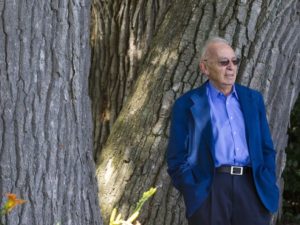 Photo: John Kenney / Montreal Gazette
Photo: John Kenney / Montreal Gazette
Oka Crisis negotiator John Ciaccia, respected by both sides, dies at 85
“When he said he was going to help, he wasn’t just saying it,” says a Mohawk grand chief of the Quebec Liberal cabinet minister in the Bourassa government.
Serge Simon says he can still remember the almost daily police harassment he endured during the 1990 Oka Crisis.
At the height of the crisis, Simon looked to Quebec Indian Affairs Minister John Ciaccia as the “one government official trying to keep the peace.” … despite his storied career in politics, Ciaccia will mostly be remembered for his role as a negotiator during the Oka Crisis.
Joe Delaronde remembers the South Shore Mohawk territory of Kahnawake being surrounded by police in 1990. He only left the reserve twice, using a small boat to get groceries in Montreal that summer.
“Both times we landed on John Ciaccia’s personal dock in Dorval,” said Delaronde, the political press attaché for the Mohawk Council of Kahnawake. “That’s the kind of man he was. That was the safest way to leave the territory and it was because of him. I’m devastated to hear about his death.”
Ciaccia had offered his dock as a way of getting medical supplies and food across Lac St-Louis to Kahnawake.
John Ciaccia, former Bourassa cabinet minister, dies at 85
The Quebec Liberal cabinet minister found himself at the centre of international attention as minister of Native Affairs during the 1990 Oka Crisis.
(The Gazette) John Ciaccia, a Quebec Liberal cabinet minister in the governments of Robert Bourassa and Daniel Johnson Jr., has died at the age of 85.
Ciaccia’s death on Tuesday at his home in Beaconsfield was first reported in the local Italian-language news website cittadino.ca, and his passing was acknowledged Wednesday morning by Premier Philippe Couillard, who described Ciaccia as having “contributed greatly to the advancement of Quebec.”
Born in 1933 in the Italian commune of Jelsi, Ciaccia’s family came to Canada in 1937. Ciaccia studied at Thomas D’Arcy McGee High School and McGill University, where he became editor in chief of the McGill Law Journal. He was called to the Bar in 1957.
Ciaccia was first elected Liberal MNA for the riding of Mount-Royal in 1973 and would be re-elected in 1976, 1981, 1985, 1989 and 1994.
He was suspended from the Liberal caucus in July of 1974 after he opposed Bill 22, which limited the ability of non-English parents to send their children to English schools, but was reinstated two months later.
Ciaccia, who worked for the federal Department of Native Affairs before entering provincial politics, represented Premier Robert Bourassa during the negotiation of the James Bay Agreement in 1975. He also held several portfolios in Liberal governments, including energy and resources and international affairs. But it was as minister of native affairs during the 1990 Oka Crisis that Ciaccia found himself at the centre of a crisis that garnered international attention.
Longtime Quebec Liberal John Ciaccia, who was native affairs minister during Oka Crisis, dies at 85
(Globe & Mail) … Premier Philippe Couillard has taken to Twitter to pay tribute to Ciaccia, who was first elected in 1973 in Mont-Royal and won the riding five more times before bowing out prior to the 1998 election.
The federalist politician was an influential minister under Liberal premiers Robert Bourassa and Daniel Johnson Jr., holding various portfolios over the years.
Ciaccia was born in Jelsi in Italy in 1933 and moved to Canada when he was just four years old. He studied at McGill University and was admitted to the Quebec bar in 1957. He practised law for a dozen years before becoming a senior federal civil servant in 1971.
Not long after he was first elected, Ciaccia was suspended from the Liberal caucus for nearly two months in 1974 — the year Bourassa government passed Bill 22 enshrining French as the official language of Quebec.
In July of that year, Ciaccia and fellow Liberal George Springate joined the Opposition and voted against the bill, which passed by a 92-10 margin.
Ciaccia was known for his involvement in native affairs: in 1975, he was Bourassa’s representative in the negotiations for what would become known as the James Bay and Northern Quebec Agreement signed with the Cree and the Inuit.
A decade after the Oka Crisis, Ciaccia published a personal memoir called “The Oka Crisis : A Mirror of the Soul.”
L’ancien ministre libéral John Ciaccia est mort
(Le Devoir) John Ciaccia a été élu député de Mont-Royal pour le Parti libéral (PLQ) en 1973, et a été réélu cinq fois ; il ne s’est pas représenté aux élections de 1998. En 1975, il a été actif dans les négociations entourant la Convention de la Baie-James avec les Autochtones.
Il a été un membre important du conseil des ministres du premier ministre Robert Bourassa, ayant notamment détenu les portefeuilles de l’Énergie et des Ressources de même que des Affaires internationales. Il était le ministre délégué aux Affaires autochtones lors de la crise d’Oka en 1990.
La Presse: Décès de l’ancien ministre québécois John Ciaccia à l’âge de 85 ans – disgusting – NO MENTION OF JAMES BAY AGREEMENT.
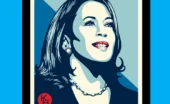

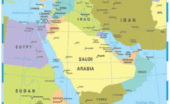
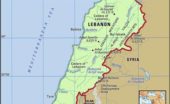
3 Comments on "John Ciaccia OWN 1933-2018"
Dear Diana Thanks for the memories. John was one of my best friends from when we met at Law school in 1954 until I visited him at the Neuro , with Joany where he courageously fought the illness that in the end took him from us. He and Norma came to our wedding in La Malbaie in 1955 and we played golf in Senneville and enjoyed lunch with Reed Scowen and Herb Marks in the last couple of years. 3 great raconteurs .
But our biggest adventure was the OKA crisis where I acted for the government of Robert Bourassa receiving my instructions from John. We worked through through the night and I ended the night on the sofa on his house in Beaconsfield.
John was a decent honest man dedicated to his friends and colleagues and fellow citizens. I will miss him. So will hundreds of others. May he Rest In Peace. Alex Paterson
Not a man but a mensch passed away! Words cannot and will not explain our emotions to witness the public deeds of such a man! We need more John’s of equal caliber! Rest in peace! Sam Totah
A true Italian gentleman and Canadian! Hélène Audren
Good afternoon Diana,
We would like to say a heartfelt thank you for supporting us at Mr. Ciaccia’s funeral and reception on Friday.
We deeply appreciate and gratefully acknowledge your kind expression of sympathy which continues to shine beautifully through the many articles written on your website.
We cannot express enough what a huge comfort it was to us all to know that he had influenced everyone’s lives in some way.
We Thank you for keeping Mr. Ciaccia’s memory alive. It has helped us to cope at this sad time.
Sincerely,
The family of John Ciaccia